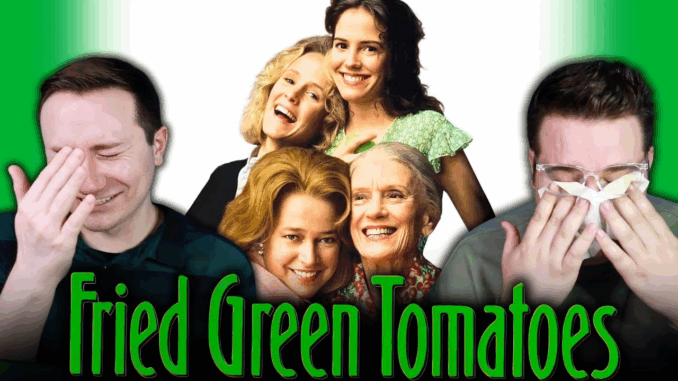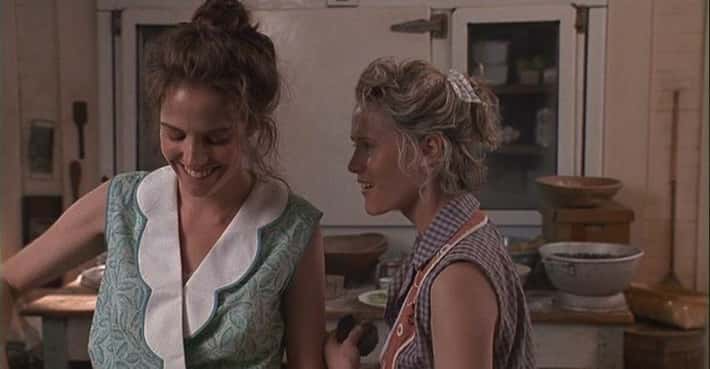
A Journey That Comes Full Circle
The ending of Fried Green Tomatoes is more than just a conclusion—it is a poetic culmination of intertwined stories, lived experiences, and the emotional growth of its central characters. After a film filled with heartbreak, resilience, friendship, and self-discovery, the final scenes deliver a powerful emotional resonance that leaves audiences reflecting on the importance of connection, legacy, and healing.
Throughout the film, two timelines run in parallel: the past, told through the memories of Ninny Threadgoode (Jessica Tandy), and the present, experienced through the eyes of Evelyn Couch (Kathy Bates). As the stories of Idgie Threadgoode (Mary Stuart Masterson) and Ruth Jamison (Mary-Louise Parker) unfold, we see Evelyn slowly transform into a woman with confidence, purpose, and empathy. The ending brings both timelines together in a surprising, tender, and emotionally satisfying way.
Evelyn’s Transformation Reaches Its Peak
By the time the film concludes, Evelyn has undergone a complete metamorphosis. At the beginning of the story, she is a timid, insecure housewife struggling to find purpose and voice in a life that feels increasingly small. But through her growing friendship with Ninny and the empowering story of Idgie and Ruth, Evelyn rediscovers her strength.
In the final scenes, we see Evelyn visiting Ninny at a nursing home only to find her room empty. Believing the worst, Evelyn is devastated. But she later finds Ninny calmly tending to her garden, revealing that she has returned to Whistle Stop. It is this reunion that provides one of the film’s most touching moments. Ninny, with her gentle wisdom and warmth, tells Evelyn that the past is never really gone—it lives on through the people who remember and care.
This moment reinforces the central theme of memory as a living force. Evelyn’s tears and embrace of Ninny are not just reactions of relief; they are symbols of how deeply she has come to love, understand, and be transformed by the stories of Whistle Stop.
The Whispered Mystery: Is Ninny Really Idgie?

One of the most poignant aspects of the film’s ending is the quiet suggestion that Ninny and Idgie might be the same person. Though never confirmed explicitly, this long-debated theory has stirred many viewers and added a layer of myth and mystery to the story. When Evelyn directly asks Ninny if she was Idgie, Ninny dodges the question, laughing it off—but her expression and tone suggest something more.
If Ninny is Idgie, it reframes the entire narrative. It means that Idgie has spent her later years sharing her truth under a different name, possibly to protect the memory of Ruth or to live quietly after a life filled with emotional upheaval. It also underscores the depth of love, resilience, and devotion that Idgie had for Ruth—carrying her story forward even in old age.
Whether or not the theory is true, it doesn’t matter as much as what it represents: the enduring nature of love and identity, the ways we carry others with us, and the stories we tell to keep them alive.
The Graveyard and the Final Goodbye
The last moments of the film take us to Ruth’s grave. A young boy—Buddy Jr., now older—places flowers there, showing how the legacy of Ruth and Idgie continues. As the camera pans across the cemetery and the familiar voiceover echoes through the quiet, we feel a sense of peace. The cycle of life has come full circle. Those who lived, loved, and struggled in Whistle Stop are gone, but not forgotten. Their stories live on in the hearts of those who heard them.
It’s a fitting farewell. There is no need for flashy drama or a dramatic final twist—just a gentle fade into memory, where love, friendship, and courage reside.
A Message That Echoes Beyond the Screen
The ending of Fried Green Tomatoes encapsulates the film’s central themes: the power of female friendship, the importance of remembering those we’ve lost, and the idea that our stories shape others long after we’re gone.
Evelyn doesn’t just leave Whistle Stop with new purpose—she leaves with a sense of belonging. Ninny doesn’t just return to a house—she returns to her past, to the spirit of a town and a time that still exists through memory and love. And the audience is left with a reminder that even the smallest lives can have the biggest impacts.
Ultimately, the ending invites us to reflect on our own lives, our own connections, and the stories we choose to carry forward. And in doing so, it turns a quiet Southern tale into a universal message of hope, endurance, and the sacred bond of chosen family.
